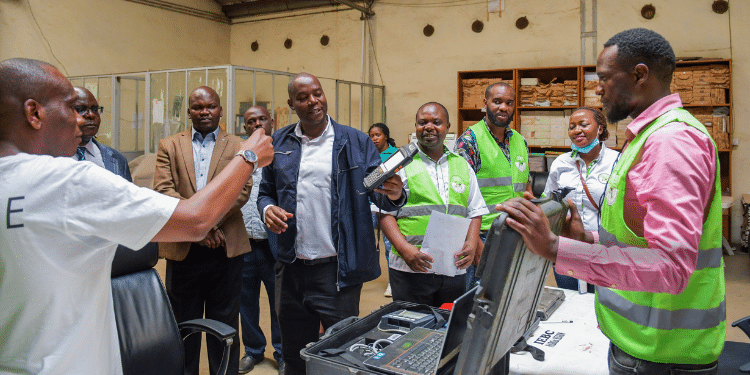A study conducted by the Ethics and Anti-Corruption Commission (EACC) has revealed staggering statistics regarding the extent of corruption in Kenyan counties.
The EACC report sheds light on the alarming prevalence of bribery, particularly in regions like West Pokot and Nairobi.
It highlights counties where bribery has become deeply entrenched in the provision of government services.
West Pokot emerges as a hotspot for corruption, with respondents reporting paying an average bribe of KES 56,695, followed closely by Nairobi, where bribes amount to KES 37,768 on average.
Other counties grappling with rampant corruption include Murang’a, Kisii, and Uasin Gishu, where bribe sizes range from KES 11,136 to KES 18,378.

“In relation to Counties, on average, respondents paid the largest amount of bribe in West Pokot (KES 56,695); Nairobi (KES 37,768); Murang’a (KES 18,378); Kisii (KES 16,810); and Uasin Gishu (KES 11,136) Counties,” read the EACC report in part.
EACC Lists Services & Institutions Affected
Additionally, the study identifies specific services and institutions that are most susceptible to bribery.
These include passport applications, seeking employment, obtaining police abstracts, and bailing arrested individuals.
It further notes that these constitute the primary areas where bribes are solicited, collectively accounting for a significant portion of national bribe payments.
Also Read: How Rogue County Officials Make Millions from Meat Inspection in Nairobi- EACC
The root causes of this endemic corruption in counties as per the report are multifaceted, encompassing factors such as poverty, cultural norms, and the misuse of state power by political elites.
Poverty, in particular, perpetuates a vicious cycle wherein individuals’ resort to corrupt practices in a bid to improve their living standards.
Furthermore, the normalization of corruption within society has eroded ethical standards, making it increasingly challenging to address this deep-seated issue effectively.
Recommendations to Curb Corruption
In light of these alarming revelations, the EACC has proposed a series of recommendations aimed at tackling corruption head-on.
These include intensifying public awareness campaigns to educate citizens about the detrimental effects of corruption, strengthening anti-corruption institutions, promoting collaboration among stakeholders, and enhancing whistleblower protection mechanisms.
Additionally, there is a call to conduct systems examinations in institutions where bribery is prevalent and to institute preventive measures in the most corruption-prone entities.
However, the battle against corruption extends beyond policy recommendations; it requires a collective effort from all sectors of society.
Also Read: EACC Arrests Nine Govt Officials
Also, public participation and feedback mechanisms must be bolstered to empower citizens in the fight against corruption.
“Enhance public participation and feedback mechanisms in the fight against corruption,” read the EACC Survey Report.
Furthermore, the anti-graft commission noted that accountability and integrity must be prioritized at all levels of government and public service, with stringent enforcement of existing anti-corruption regulations.








































































